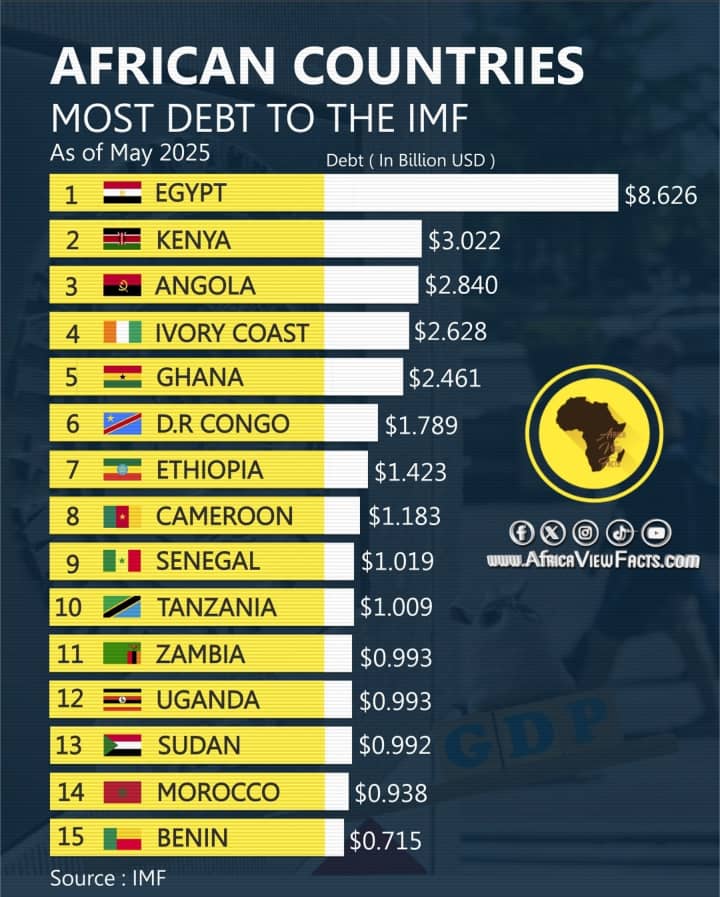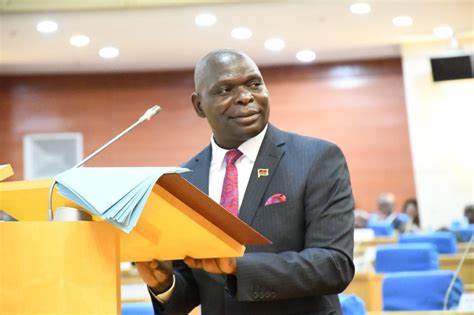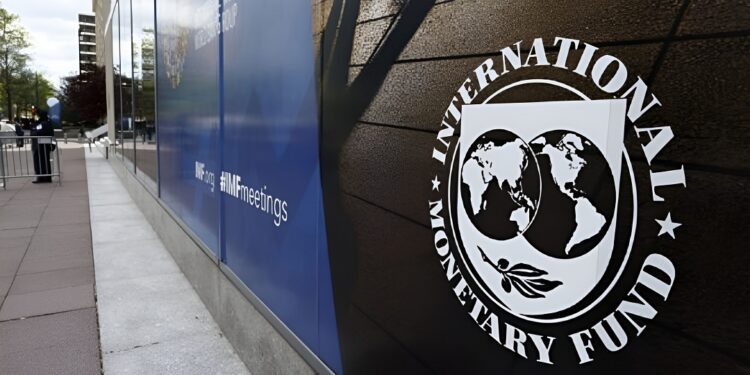As debates around Malawi’s economic performance heat up, particularly following the recent termination of the $175 million Extended Credit Facility (ECF) with the International Monetary Fund (IMF), one startling revelation stands out: Malawi doesn’t even rank among the top 20 African countries in debt to the IMF.
This revelation, backed by May 2025 data from the IMF itself, is both revealing and telling of the scam that is the IMF and its ECF facility.
While countries like Egypt ($8.6 billion), Kenya ($3.02 billion), and Angola ($2.84 billion) top the charts with the largest debts to the IMF, Malawi remains a relatively minor debtor.

Despite this, it is subjected to the same rigid and often brutal conditions that have historically been slammed as neo-colonial and anti-poor by economists, civil society actors, and even some African leaders.
The case of Malawi echoes a wider African frustration with the IMF’s one-size-fits-all, austerity-first model.
While IMF programs are technically “voluntary,” the sheer desperation many countries face leaves them with little choice but to accept painful terms. For countries with high IMF exposure like Egypt or Ghana, the pattern is familiar—debt relief or disbursements in exchange for austerity, followed by unrest and deeper economic pain.
In the case of Malawi, the recent fallout with the IMF was not due to recklessness or mismanagement, as critics suggest. As the Finance Minister Simplex Chithyola Banda pointed out, the Government of Malawi requested a mutual suspension of the ECF, citing the unrealistic nature of IMF’s conditions during an election year.

These conditions included a demand to hiking fuel prices, which would have worsened inflation and made transportation and goods unaffordable for ordinary Malawians; freezing public sector hiring, risking a total collapse in essential service delivery like healthcare and education; and cutting wages and salaries in the civil service, a move that would have demoralized civil servants and worsened already high levels of poverty.
These are not just economic adjustments; they are social bombs that threaten the very foundation of everyday life in Malawi.
Malawi, with relatively low IMF debt, has shown courage in standing its ground. In fact, Malawi is reportedly on 28th position in Africa in terms of IMF debt, behind even some of its more stable neighbors. This makes the severity of the IMF’s conditions even more shocking.
Let’s be honest: the IMF was never designed for Africa. It was created in the aftermath of World War II to help rebuild industrialized economies. Its formulas often fail in developing contexts, where social safety nets are weak, and poverty is deep-rooted.
For instance, demanding civil service retrenchment and fuel hikes ahead of elections is not reform—it borders on sabotage. What government would survive such pain inflicted on its people, especially during a politically sensitive time?
This isn’t just misaligned policy; it reeks of economic imperialism. Many have rightly compared the IMF’s practices to modern-day colonial control, where financial dependency is weaponized to force nations into submission.
To make this case more interesting, amidst the standoff between Malawi and the IMF, the country received a $350 million grant from the World Bank for its Mpatamanga Hydropower Project-a vote of confidence in local economic leadership.
The contrast between the IMF’s cold rigidity and the World Bank’s strategic investment is telling. While one demands pain, the other funds progress. While one pushes Malawi toward the brink, the other invests in its future.
Malawi’s refusal to bow to harsh IMF demands is not a failure—it’s a bold stand for sovereignty, social protection, and economic realism. It’s time to reframe the narrative.
Malawi may be small in IMF debt, but it is big in courage and principle. And for that, it deserves commendation—not condemnation.








